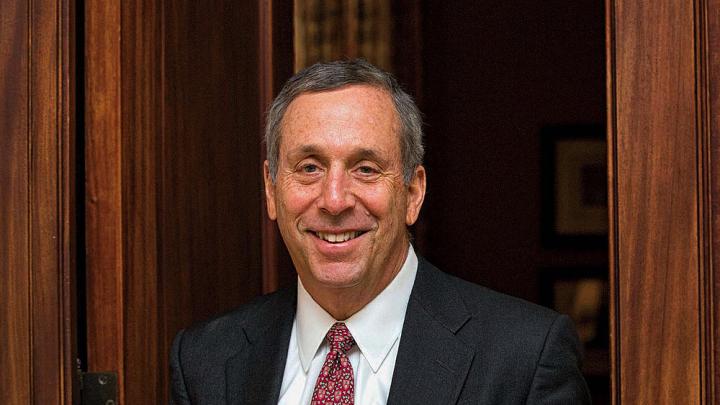This summer, an alum asked me how I know when to speak out on an issue—a question I get more often these days. As any frequent reader of this column would surmise, I am wary of giving the impression that the view of the president is the view of our community. On any matter of consequence, it is possible to hear every point and counterpoint, to encounter individuals of various experiences and perspectives who have all arrived at their conclusions after careful and thoughtful consideration. Harvard does not speak with one voice. This truth is central to both our durability and our utility. The idea that some might feel freer than others to express their views openly is, I believe, contrary to our mission and to the trust placed in our institution for centuries. The road to Veritas is often long and rough; dissent and debate pave it far better than steamrolling.
Yet times have changed. I have heeded more calls to speak out in the last three years than I ever thought possible, and I am not alone. Every college or university president I know faces tough decisions about when and how to communicate to internal and external audiences. Say too little and risk seeming unengaged or, worse, unaware. Say too much and risk creating a signal-to-noise problem and being tuned out. Say what you will and brace for a brand of derision and vitriol unique to emails penned anonymously—or not. Even the most anodyne statements tend to be read through highly polarized lenses. I sometimes think I could send a message saying “good morning” and be criticized for being overtly political. To my correspondents, I often respond with a simple observation: As president of Harvard, I determine what I say. I am sorry if I disappointed you, but I am doing the best I can.
Beyond the question of frequency, on what issues should a university president comment? I try to speak only on those issues that I believe are closely related to Harvard and our mission. If the topic is of general interest, a public statement to our entire community, including alums and friends, is in order. Otherwise, I tend to communicate more narrowly. Since assuming office in 2018, I have had occasion to email all alums directly just nine times—a fraction of the more than sixty times I have written to students, faculty, and staff.
Some of those messages followed situations that shocked the conscience and created anxiety and fear among members of our community. In those moments, I offered whatever comfort I could and reminded people that they are not alone. Unfortunately, acts of hate and violence in our society have persisted and increased throughout my presidency. They continue to necessitate stronger affirmations of what it means to be part of a university like Harvard and how our work helps to repair our world. Writing with the provost, the executive vice president, and the deans as the country awaited the verdict in the trial of Derek Chauvin earlier this year was just such a moment. We communicated together the values that animate and guide our efforts in every part of the University, values that also remind us of our expectations of each other. These values have served us well over many generations and will continue to shape and inform our decisions.
Theodore Roosevelt, Harvard College Class of 1880 and the 26th president of the United States, coined the term “bully pulpit.” Over the last three years, I have grown more mindful of the role that my words and actions play in shaping the University, both from within and from without. I have endeavored, with the help of incredibly talented colleagues, to make decisions guided by wisdom, values, and experience. There is no way to know what the year ahead has in store, but I will continue to communicate the value of our mission and interests as I champion all perspectives being heard at Harvard.







